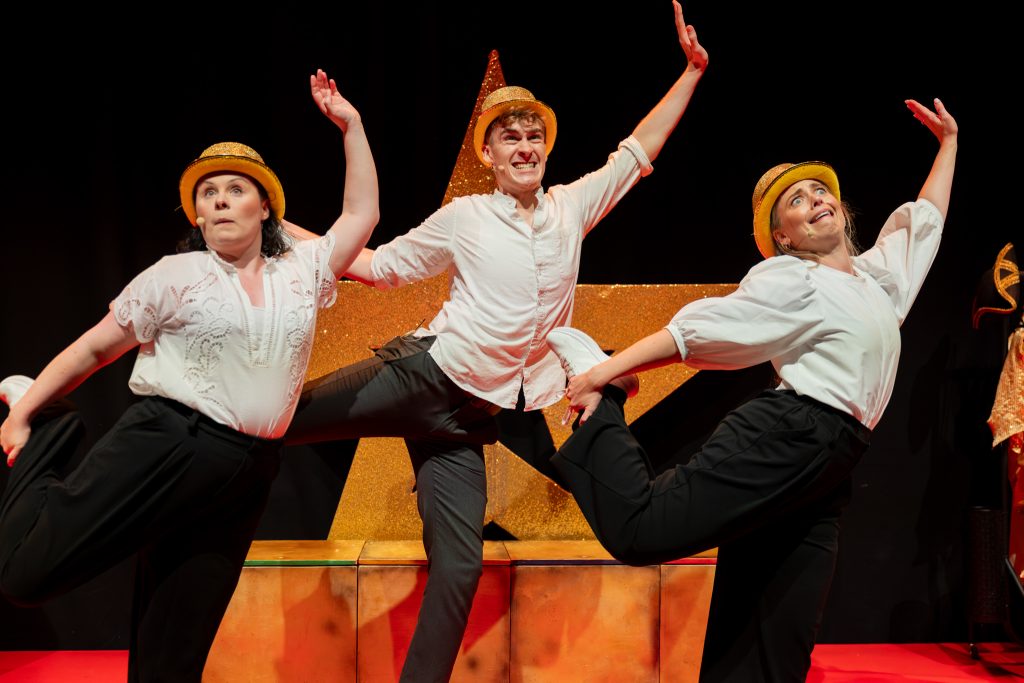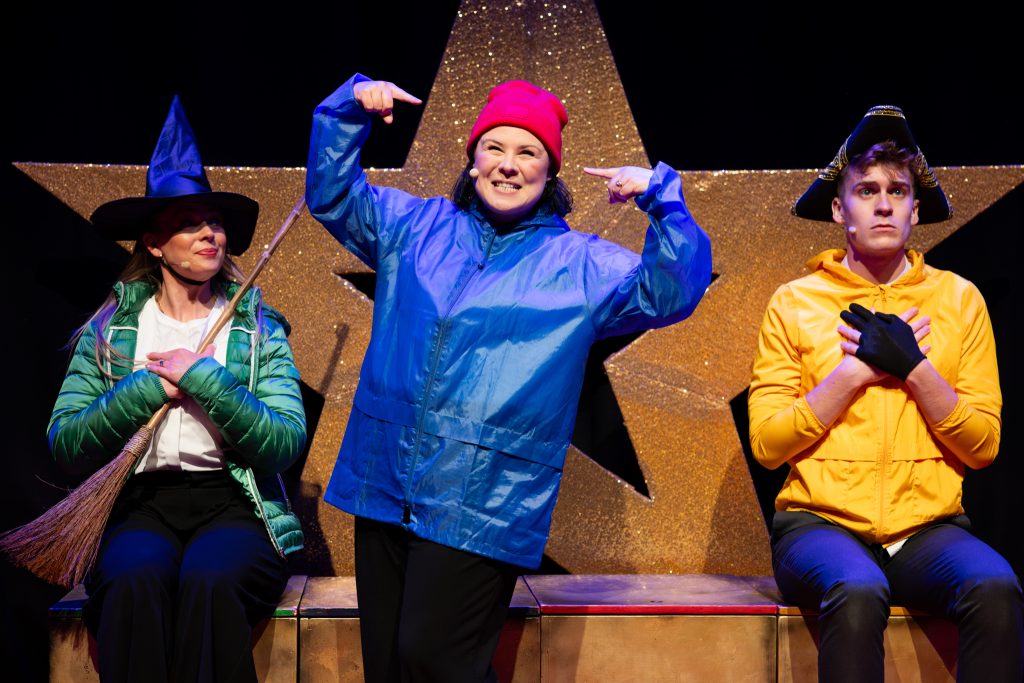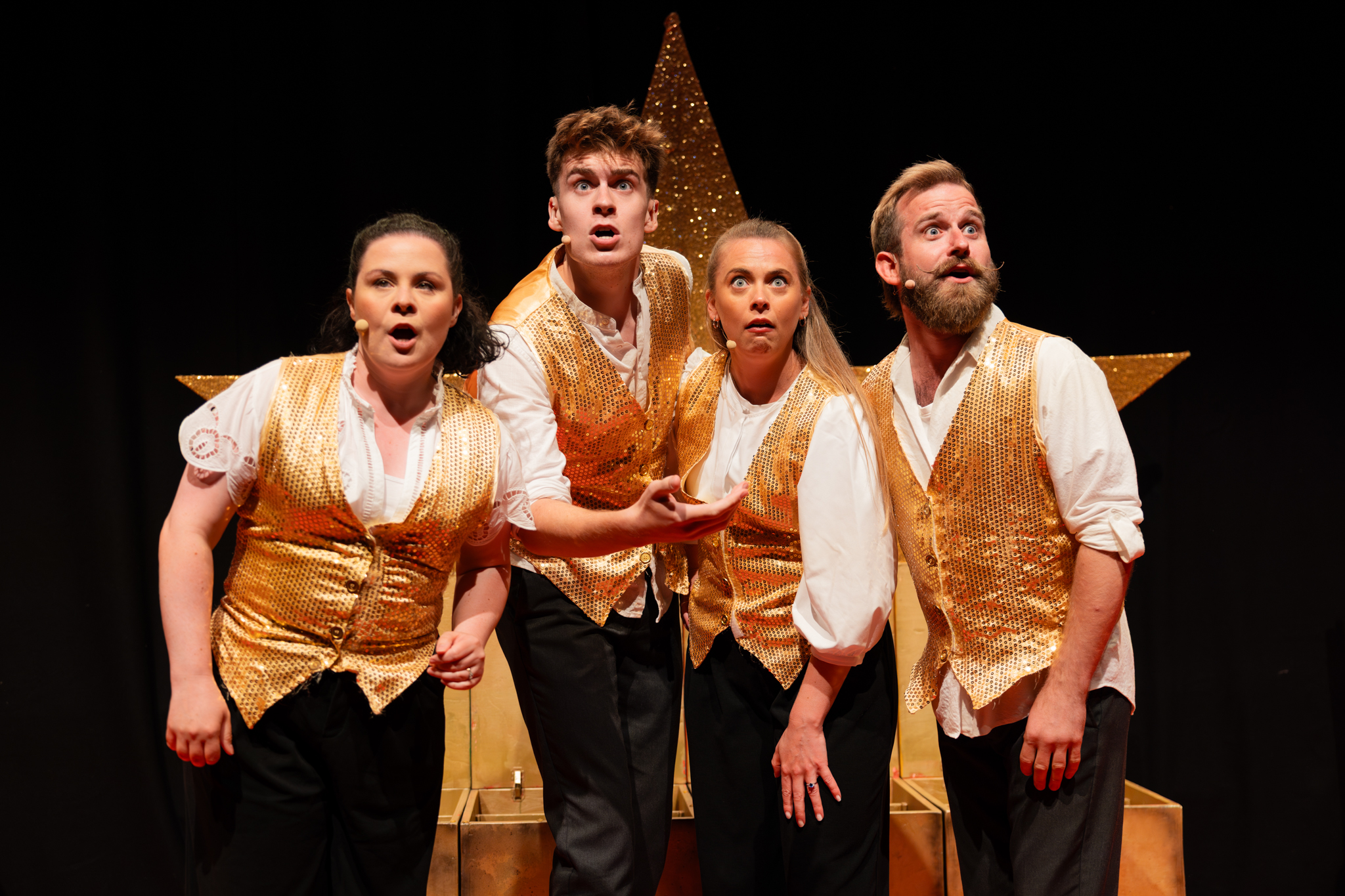You don’t just watch I Wish My Life Were Like a Musical. You grin, you clap, and you recognise your own theatre-going habits reflected back at you with razor-sharp wit. It is, quite simply, the standout musical comedy of this year’s Edinburgh Fringe.
Written and composed by Alexander S. Bermange, and directed and choreographed with knowing flair by Aaron Renfrew, the show is a fast-moving revue performed by Joel Benedict, Rory Connolly, Samantha Dorsey and Emma Ralston. The cast may not yet be household names, but their vocal precision and comic timing are extraordinary, each of them slipping between caricature and sincerity without missing a beat.
The first song, titled The Opening Number, sets the bar high. On the surface it’s a parade of lines lifted from famous musicals, yet woven together so deftly that they create their own fresh narrative. It’s a cheeky act of musical recycling, delivered with pastiche choreography: jazz hands, leg kicks, a little wink at the more formulaic corners of West End staging. On the night I attended, an extra layer of comedy arrived when the performers sang about “latecomers come clambering in” just as the side door swung open and several stragglers took their seats. That unplanned alignment of lyric and reality had the audience roaring, and it captured the tone of the whole evening: self-aware but never smug.
Bermange’s lyrics deserve massive praise. They are as sharp and polished as anything by Tom Lehrer or Noël Coward, full of wordplay that dazzles without ever feeling contrived. A perfect example is the line ‘What Would Idina Do?’, a gleeful riff on the power and mythology of Idina Menzel, who first played Elphaba in Wicked. The humour is precise, insider-friendly yet open enough that even a casual theatre-goer catches the joke.

The revue format allows the show to bounce between different corners of theatre life. Superfan is one of the highlights, with the four performers costumed as Phantom, Cosette, an unidentified actor from Hamilton, and Elphaba while confessing to obsessions that every musical lover will recognise. They argue about which Elphaba was best, boast of having song lyrics tattooed in questionable places, and admit to using ‘24601’ as their computer password. The parody is affectionate rather than cruel, and you sense that the writer loves these devotees even while gently satirising them.
By contrast, the number about understudies is unexpectedly touching. It captures both the aching hope of the performer waiting for a chance and the groan of an audience that thinks they are being short-changed. One line in particular lingers: “Do you know what it’s like to hope to hear you’re on every time you answer the phone?” Sung with unforced sincerity, it gives weight to a character usually dismissed as a footnote. In that moment the show proves it is more than just a collection of punchlines.
The satire returns in a duet where two co-stars sing rapturously of gazing into each other’s eyes while privately revealing their disgust. Halitosis, dripping saliva, and garlic-laden diets become weapons in their nightly battle. The juxtaposition of soaring melody with vicious asides makes the number both grotesque and hilarious, and the audience relishes every bar.

Equally funny is the song about secret musical-theatre fans. One sketch pictures a tough, intimidating football supporter downing pints, only to confess a passion for show tunes. Another has a stern theatre critic who normally reviews Beckett and Pinter sheepishly admitting that even Shakespeare would have loved West Side Story (which, of course, is a retelling of Romeo & Juliet). The idea that love for musicals hides in the unlikeliest places is a rich vein, and the performers mine it with relish.
Then comes a showstopper: The Diva’s in the House. Here Emma Ralston steps into full prima donna mode, preening and pronouncing herself “inspired by the page – a shame the Paige is Elaine.” The pun lands with a crackle because it’s both a dig and a tribute, and the sheer boldness of the delivery leaves the crowd howling. It is the song everyone mentions on the way out, the point at which satire, performance and musical wit fuse perfectly.
Staging is modest but clever. A handful of props do more than enough. When the diva is spotlighted in a haze of gold as if she were commanding the Olivier, the joke lands harder because the setting is in fact a small Edinburgh stage. The simplicity of design lets the words and performances dominate, which is exactly right for a piece built on lyrical ingenuity.
What makes this revue feel so fresh is that it loves the art form it teases. It mocks latecomers, diva tantrums and obsessive fans, but it also finds sweetness in the lives of understudies and warmth in the shared bond of musical-theatre lovers.
I Wish My Life Were Like a Musical is the best kind of small theatre experience: intimate, smart, and bursting with talent. It has the bite of satire but the heart of celebration, and every number leaves you wanting the next. If you know your Eponine from your Elphaba, or your Fiyero from your Fyedka, you will catch every sly nod. If you don’t, you will still laugh at the human truths behind the gags. Either way, it is the highlight of the festival.


